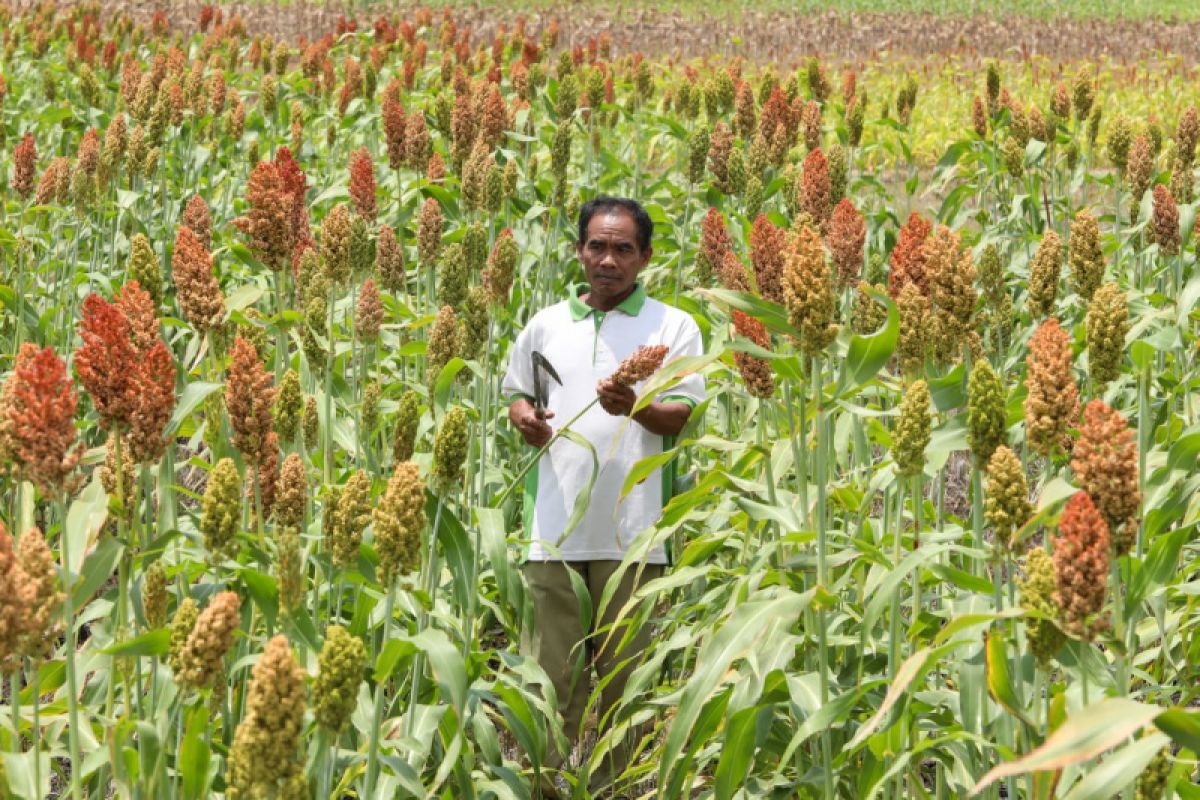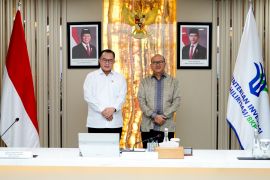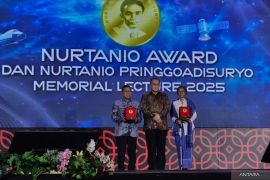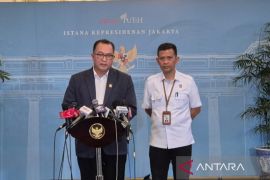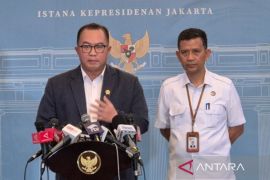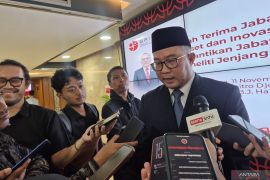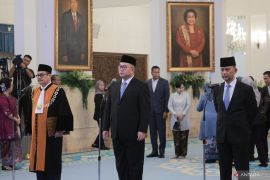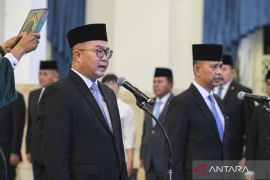"The impact of the COVID-19 pandemic is still being felt, and has been exacerbated by the Russia-Ukraine war, which is increasingly disrupting the world's food and energy supply. For this reason, alternative solutions are needed, and mastery of this sorghum production technology is important to anticipate the food crisis," he explained in a statement issued in Jakarta on Tuesday.
According to Handoko, sorghum can be an alternative for facing the food crisis because it has higher protein content than rice. However, it needs to be supported with the mastery of sorghum production technology, so strengthening research in that direction is important.
He said the sorghum can also serve as an alternative to wheat to reduce imports of wheat.
BRIN is committed to supporting food sovereignty through research and innovation activities such as optimizing food productivity and producing superior varieties.
Meanwhile, chairperson of the Research Professors Council at BRIN, Bambang Subiyanto, said that sorghum is a commodity that has wide adaptability, especially on marginal lands with low fertility levels, so it will not interfere with the production of other existing food commodities.
"Although genetically sorghum has resistance to extreme conditions, plant management technology also plays a role in producing optimal production," he added.
He said that sorghum plant management technology must be strengthened, including the provision of quality seeds of superior varieties, application of cultivation technology according to plant needs and specific environments, proper harvest and post-harvest management, and the development of various processed sorghum products.
President Joko Widodo (Jokowi) had earlier urged members of the Indonesian Chamber of Commerce and Industry (Kadin) to plant sorghum in East Nusa Tenggara (NTT) province as a joint step to reduce the need for national wheat imports.
Amid a global food crisis, Indonesia still needs to import wheat, the head of state noted. The country is still importing 11 million tons of wheat owing to its inability to grow enough to meet national demand. However, there is an option to intensify the cultivation of commodities that can be mixed with wheat.
"Wheat can be mixed with cassava, sorghum, and sago as well. Hence, I invite all of you to start planting the substitute. For instance, we can start planting sorghum in NTT," he said.
Sorghum crop is thriving in NTT at a reasonable cost, he noted.
"We can try first. We do not need thousands of hectares. We can start with 10 hectares first. Count, calculate, and plant as much as possible. It can be used for the wheat mixture," he stated.
Widodo then shared his experience during a recent working visit to Waingapu district in NTT. He found the soil quality in the region to be relatively marginal and water sources lacking. However, sorghum plants still thrived under such conditions.
"For the location, NTT could provide hundreds of thousands of hectares. We are waiting for real action from Kadin," he emphasized.
Related news: Ministry reaffirms support for sorghum development in W Nusa Tenggara
Related news: Moeldoko calls for accelerating development of sorghum ecosystem
Related news: Navy plants corn, sorghum in South Kalimantan's Tanah Laut
Translator: Martha H, Azis Kurmala
Editor: Sri Haryati
Copyright © ANTARA 2022
